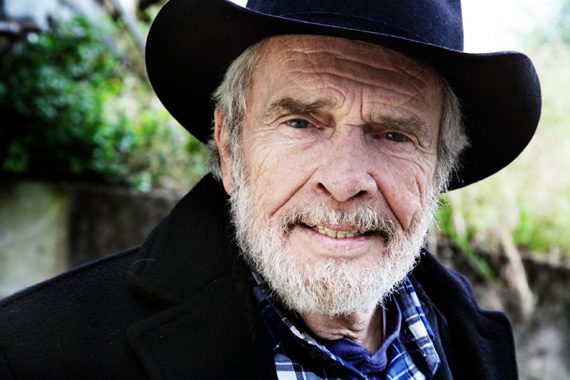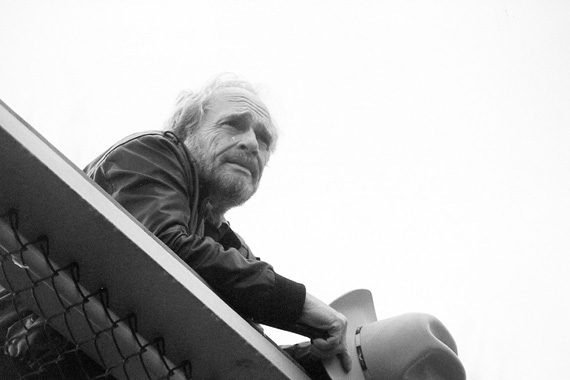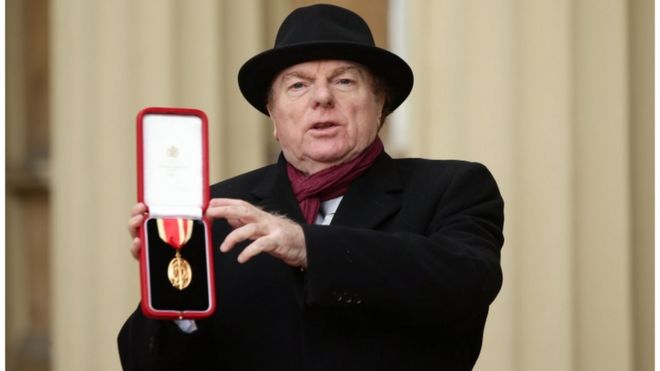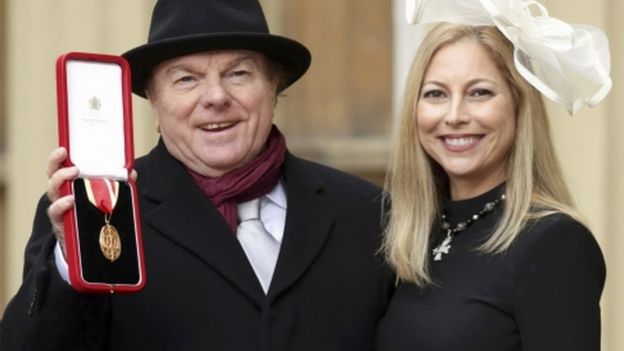|
|
Court Report from
Tuesday April 5 – Day 2 of the Dallas 6 Trial
in Wilkes-Barre,
PA
The Dallas 6
are six African American prisoner whistleblowers in solitary confinement at SCI
Dallas Pennsylvania charged with rioting for peacefully protesting on April 29,
2010 against widespread abuse, violence & torture by prison guards of Black,
Latino and white prisoners which they had documented. The remaining three facing
charges – Andre Jacobs, Carrington Keys, and Duane Peters – finally have a jury
trial after almost six years. For info or to support: scidallas6.blogspot.com. Donations: tinyurl.com/rally4dallas6
|
Highlights
Day 2
|
graphic by Molly
Crabapple
|
· Big news! The
court heard why the Dallas 6 did the peaceful protest. There was concern
that they would not have been allowed to lay this out in court, so the fact that
they did was in and of itself a victory. Andre Jacobs and Carrington Keys gave
powerful opening statements laying out why they did the peaceful protest. They
were well-prepared, thorough and were effective in their cross-examinations.
· Prosecution called
two prison officials as witnesses in an attempt to back their claim that the men
wanted to coerce the guards to forcebly remove them from their cells. They
further charged Carrington Keys with assault: they claimed he threw feces.
· A video was shown
in which Duane Peters is clearly heard over and over saying, “We want to talk
to the Luzerne County Public Defenders,” prior to guards removing the men
from their cells (cell extraction).
· Defendants blew
holes in the prosecution’s assault charges by showing discrepancies with
official reports; they said they did not know cell extraction would happen and
that prison officials could have avoided it.
After the
prosecution made their opening arguments that this was a riot because the men
wanted to coerce cell removal/extraction and there was assault because Keys
allegedly threw feces, Andre Jacobs, one of the Dallas 6, told the jury they
were appreciative because this was the first time in six years that they had a
chance to tell their side of the case. He then laid out how the evidence showed
that the police never investigated the so-called crime scene, that the charges
are politically motivated and that the Dallas 6 were targets of retaliation
because they had a lawsuit against the prison and the guards. Retaliation was
in the form of mail tampering, deprivation of food and clothes, attacks and
threats that they would be killed. He understood that prison is not a country
club, but the guards have a duty to abide by the law. He took the peaceful
action to protect himself and the other prisoners. He hopes the jury finds them
not guilty.
Carrington
Keys of the Dallas 6 began by thanking the jury, and said they did a peaceful
protest in defense of others imprisoned in solitary confinement. They had filed
hundreds of complaints about abuse and torture without relief, only
retaliation. After guards left a Latino man in a restraint chair for 15 hours,
they had to do something to save the life of friends and others, so they engaged
in a peaceful protest, as it was the only option available to them. During the
cell extraction, it was factually and mathematically impossible for a substance
to be thrown, and reports showed the guards sustained no injuries and did not
change their clothes. Covering cell windows are actions taken every day and
there is never this level of response. They were singled out. Covering cell
windows is not a riot. He said, “Ladies and gentlemen of the jury, you are
our only voice, and your duties are important.”

graphic by Molly
Crabapple
|
Michael
Wiseman, attorney for Duane Peters, defined the terms: RHU is a block of cells
where men are kept in solitary confinement without contact with each other or
others except for an hour of what is euphemistically called “recreation.” A
restraint chair is where you are strapped by your arms and legs with strict
guidelines on use which are not always honored. He said, “these gentlemen can
give context in a way I cannot on the brutality of what goes on in RHU and what
happens in cell extraction where the force is overwhelming. It’s a brutal
process, with stun guns, tasers and electric shields that bring a prisoner down
immediately.” He said the jury will hear shouts of “stop resisting” but they
will not see any resistance. The prosecution is trying to turn a peaceful
protest into a riot charge. He’s not saying that what they did was the right
thing to do as the prison rules say you cannot cover your window, but in the
context it may have been the right thing to do. And covering your cell window
is a common occurrence. This is a serious criminal charge and not all is what
it appears to be.
Sargent Buck
was the first witness to be called by the prosecution. He claimed that feces
hit him “in the head area”. A video was shown of the cell extraction, where he
was the camera man, the 5th man in the line to go into the cell. Two
videos were shown leading up to the cell extraction, one where he goes down the
line of the cells asking each of the seven men to remove the item covering the
window and announcing that each man was not compliant. The other is where the
court psychologist who is supposed to be their hostage negotiating team to try
to talk to the men, goes to each cell. He says, “remove the sheet so I can talk
to you.” By this time another prisoner has covered his window. None respond
except Duane Peters who says over and over, “We want to talk to the Luzerne
County Public Defenders” and “you are denying us our right to talk to a lawyer.”

video still
from cell extraction of Carrington Keys
|
In cross
examination, Carrington Keys brought into evidence, despite objections of the
prosecution, a medical report that said Mr Buck was hit in the back of the head
by a cup of urine and feces that was thrown at him. Mr Buck said that he didn’t
write that report but he would not deny it on the stand, only that “he was hit
in the head area”. But he could not remember where in the head he was hit. It
was also raised whether the report of the assault was written before the
incident even took place which he denied, and that the story was fabricated as
retaliation which he also denied. Further that reports and previous testimony
were that “the inmates were protesting”, never that the inmates were rioting.
Also that he failed in his duty to counsel prisoners.
Andre Jacobs
asked Mr Buck how many times he has met with the DA to discuss his testimony.
He couldn’t remember and he denied discussing his testimony. He claims he
couldn’t remember when he knew that grievances had been filed against him and
that he was out on medical leave. Andre raised the suicide of Matthew Bullock
(a mentally ill, elderly white man), which the men had documented in the Human
Rights Coalition report. When the prosecution raised objections that it was not
relevant, Andre Jacobs replied that our defense is that once the HRC report came
out, we were retaliated against, that Mr Buck prevented the process of finding a
resolution. Andre’s questioning brought out that cell extraction is
discretionary, that there were other options. This is important since the
prosecutors claim is that the men knew they would face cell extraction, and they
didn’t.
Attorney
Michael Wiseman’s cross-examination revealed that the guards had received a note
from a confidential informant that a protest was going to happen. He also
exposed a prison rule that when executing extraction, it was to be “with the
least amount of force necessary.”
The final
witness of the day for the prosecution was Lt Mozier. He claims he went around
to talk to the men before the cell extractions began. But there is no video
evidence of this, and the men claimed it never happened. He also claimed that if
the men had removed the items blocking the window and come to the door and put
their hands through the slot to be handcuffed as did one prisoner, there would
not have been the cell extraction. Andre Jacobs said they feared for their
lives and that their lives were threatened. Lt Mozier also said he could not
remember if the items had already been removed from the cell windows before
extraction began. He doesn’t recall any conflict with the prisoners or the
complaints made against him. Carrington Keys again raised that Lt Mozier did
nothing to try to resolve the issue, that there was no record anywhere of his
having gone cell to cell to talk to the men, there were other avenues than cell
extraction, and that he took no steps in crisis intervention.
The video
player didn’t work, so questioning of Lt Mozier is resuming today (Wednesday),
after playing the next video.
|
ANYONE WHO CAN ATTEND THE TRIAL ANY
DAY THIS WEEK, PLEASE CONTACT US!
WE URGENTLY NEED AS MANY SUPPORTERS AS
POSSIBLE TO BE PRESENT IN THE COURTROOM.
Now is the
time to help these brave prisoner whistleblowers win a major victory for
prisoners across Pennsylvania and across the US!
Please
do the check-in below if you want to come or contact by email or phone. Rooms
are available in the area.
If you cannot attend, PLEASE,
do the call-in/fax-in. There are links taking you to the instructions and
letter templates for emailing or faxing.
|
 Daily
coverage of the trial
by NBC 28 Scranton (Note: exact link may have changed, you may have to search
video on website) Daily
coverage of the trial
by NBC 28 Scranton (Note: exact link may have changed, you may have to search
video on website)
 Times-Leader (Luzerne County): Times-Leader (Luzerne County):
CAN YOU
COME?
Trial is expected to last five days.
Cars will be coming from Philly daily but you need to COMPLETE THE ONLINE
CHECK-IN if you need a ride or can provide a ride from Philly or Pittsburgh,
and/or would like to stay overnight - http://tinyurl.com/dallas6check-in
CAN'T COME? WE STILL NEED YOUR
HELP!
MAKE A
DONATION! Online at http://tinyurl.com/rally4dallas6 or send check/money order payable to
Abolitionist Law Center, P.O. Box 8654 Pittsburgh PA 15221 Memo line:
Dallas 6
DROP THE
CHARGES!
For those
who can’t make it to the trial but want to show support, please take part in a
CALL-IN/FAX-IN to the DA demanding she drop charges. Details and talking points
at - http://tinyurl.com/dallas6letter
Dallas 6 online:
Twitter -
Follow @madinah7 for trial updates
Twitter
Hashtags - #Dallas6 #Justice4Dallas6
Contact: Shandre Delaney, mother of one of the
Dallas 6; Human Rights Coalition 412-403-6101
Phoebe Jones, Justice for the
Dallas 6 Support Campaign; Global Women’s Strike 610-505-4944
Justice
for the Dallas 6 Support Campaign:
Abolitionist Law Center; Every Mother is a Working Mother Network; Fight for
Lifers West; Germantown Friends Meeting Mass Incarceration Working Group; Global
Women’s Strike & Women of Color@GWS – US; Human Rights Coalition – Fed Up;
Human Rights Coalition – Philadelphia; Marcellus Shale Earth First; Mishkan
Shalom New Jim Crow Study-Action Group; Payday men’s network; Peacehome
Campaigns; Shalefield Organizing Committee. Endorsements: Art for
Justice; Brandywine Peace Community; California Families Against Solitary
Confinement (CFASC); The Center for Returning Citizens (TCRC); Decarcerate PA;
Defending Dissent Foundation; Global Women’s Strike & Women of Color@GWS –
UK; Green Party of Philadelphia (GPOP); Human Rights Defense Center – Lake
Worth, Florida; Jewish Voice For Peace - Philadelphia; People’s Opposition to
War Imperialism and Racism (POWIR) – Hollywood, Florida; Philadelphia Coalition
for REAL Justice; San Francisco Bay View newspaper; Sin Barras – Without
(Prison) Bars – Santa Cruz; T'ruah: The Rabbinic Call for Human Rights; WHAT’S
UP?! Pittsburgh; Welfare Warriors; Women’s International League for Peace and
Freedom (WILPF) – Philadelphia. Individual Endorsements: Pam Africa,
International Concerned Family and Friends of Mumia Abu-Jamal; Patrice Armstead,
Building People’s Power and Coalition Demanding Reinstatement of Dr. Monteiro;
Malik Aziz, Founder, Men United for a Better Philadelphia and Chairman, National
Exhoodus Council; Pastor Antoinette Johnson, King Solomon Baptist Church; Dr.
Anthony Monteiro; Rev. Bob Moore, Executive Director, Coalition for Peace Action
(for id purposes only); Margaret Prescod, host of “Sojourner Truth” on Pacifica
Radio; Dr. Heather Ann Thompson, Professor of African American Studies &
History, Temple University; Dr. Cornel West, Princeton University; Dr. Carla
Willard, Africana Studies Program, Franklin & Marshall College.
Partnering with: AFSC Prison Watch.
|
|















